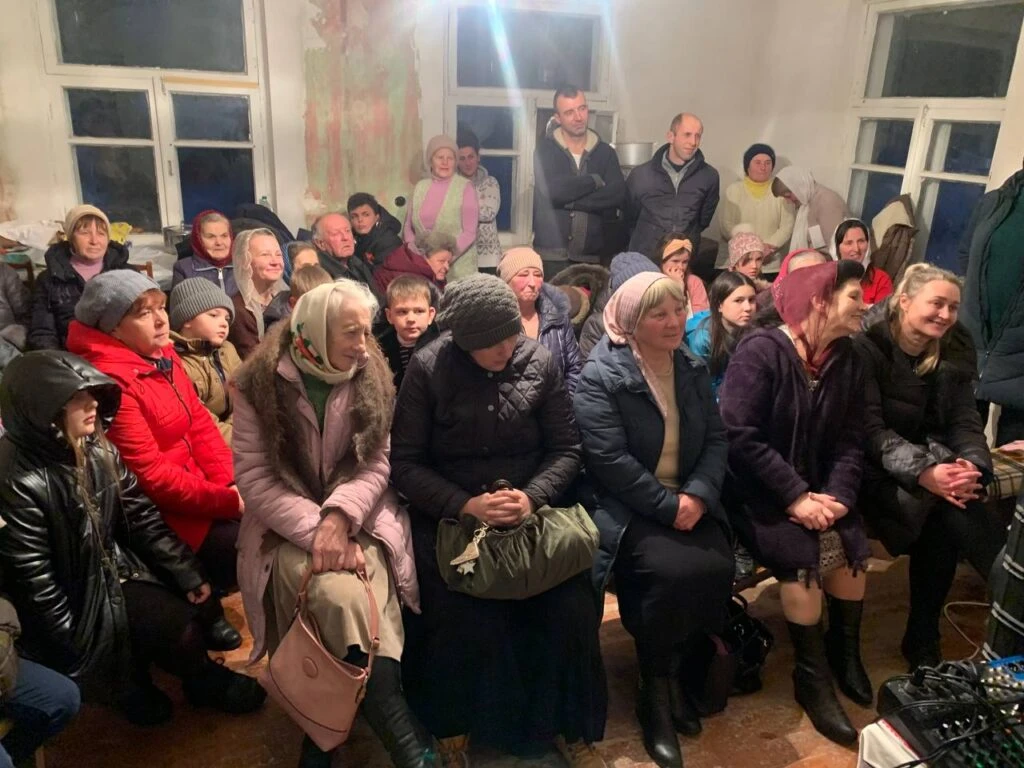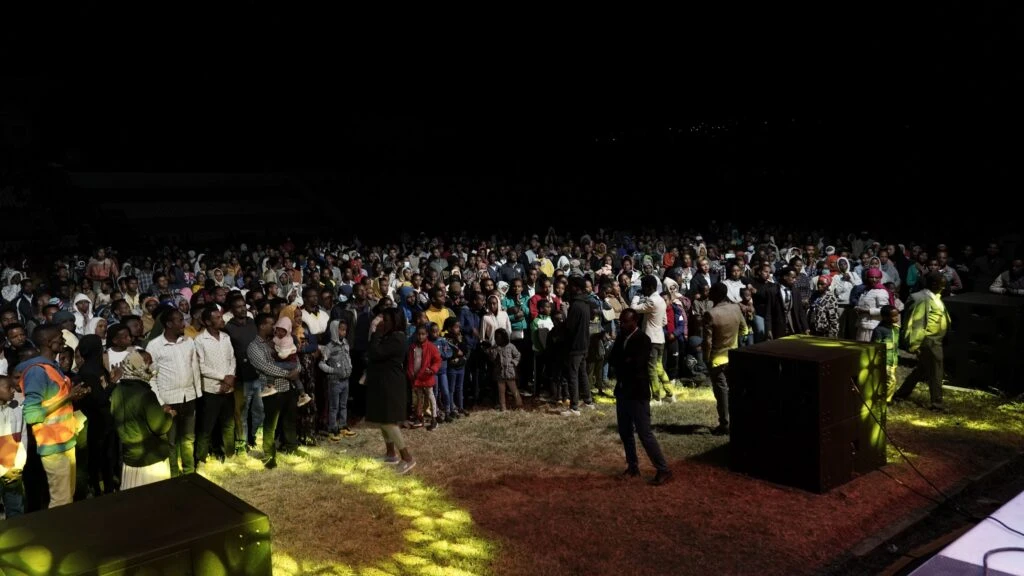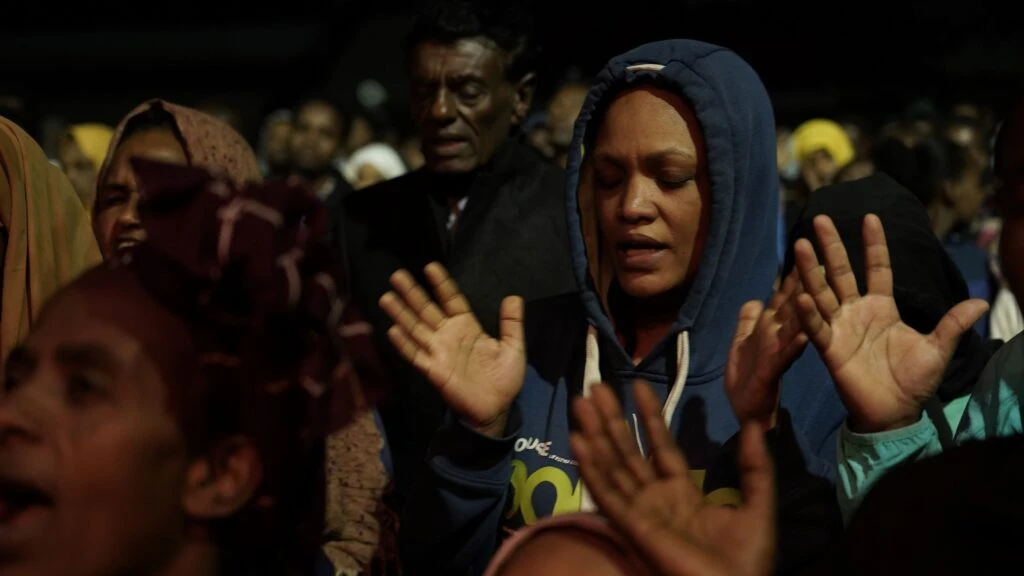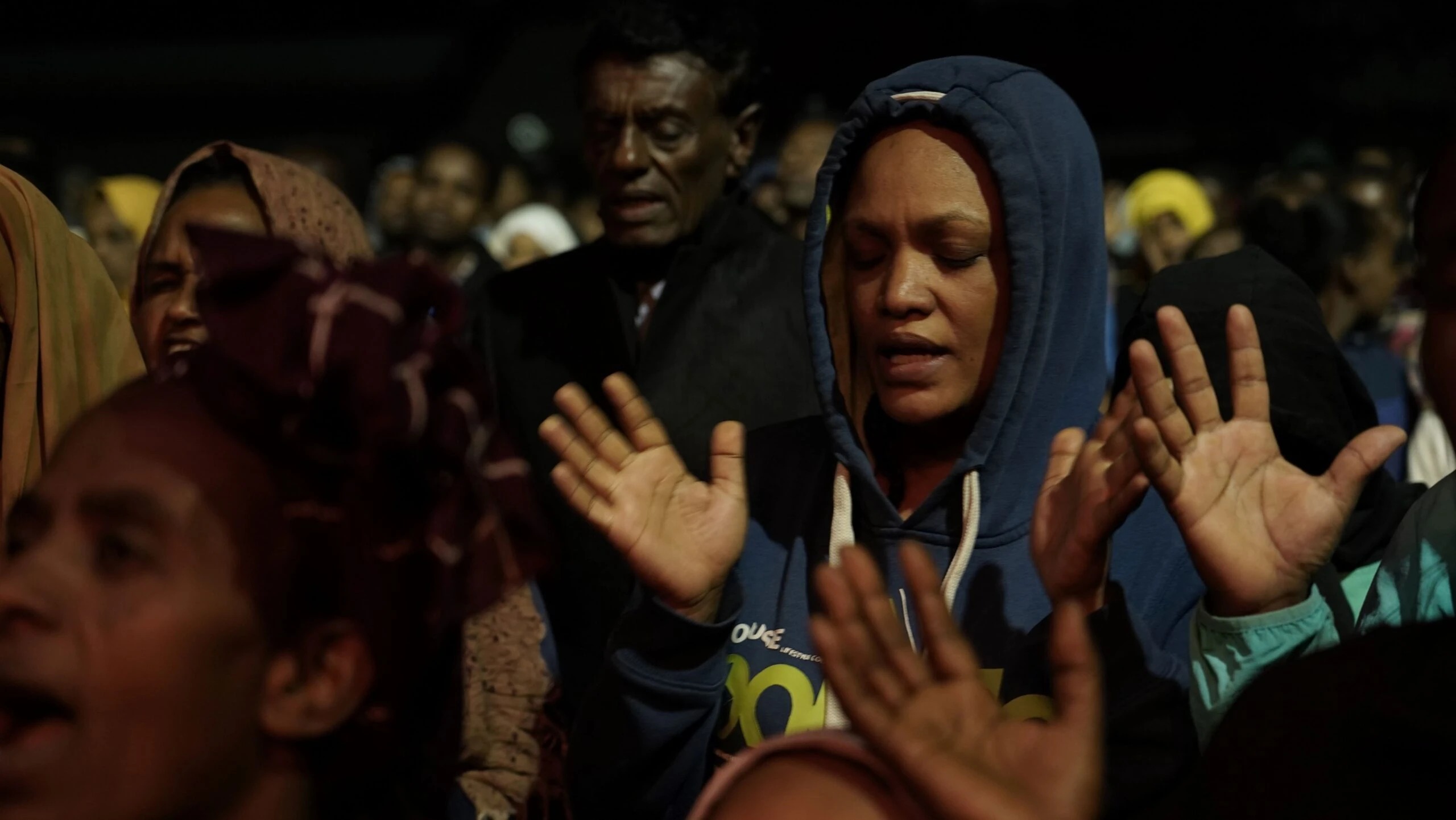“We need not only people who are organized, but people who know the truth and live by it” – Taras Sen, Director of Christ Is the Answer International Ministry (CITA)
19 January 2024
Taras Sen, a missionary with more than 20 years of experience, began his work in the Luhansk region, where he served for 15 years. Back in the 2000s, the minister used many tools to reach souls: street evangelism, sermons and stories on local TV channels, educational lectures at universities, children’s events, church meetings, eye clinics, evangelistic newspapers…
After the occupation of Donbas at the beginning of Russia’s war against Ukraine in 2014, the minister stayed in the Luhansk region saving civilians from starvation.
At that time, there was no talk of a ministry, but by doing good deeds, helping people to survive, he and like-minded people from many regions of Ukraine led people to God.
Even before his imprisonment in the basements of Luhansk in 2015, the minister received a revelation from God to start a ministry.
Deported from the Luhansk region for “extremist activities,” Taras Sen moved to western Ukraine, where, although he had to start from scratch, his rich experience in spreading the Gospel through various means helped him.
The minister became a pastor of a church in Rivne and co-founded the Christ is the Answer ministry, which eight years later became an international ministry.
The status of the ministry has changed, but the tools for reaching souls with the Gospel have remained the same and continue to work just as effectively in various countries where CITA missionaries and volunteers serve, including Ethiopia.
In the interview, Taras Sen shared his impressions of serving Ethiopians, talked about the difference between Ukrainians and Ethiopians in perceiving the Good News, and gave advice to young missionaries.
Mr Taras, who do you think is easier to preach to? Ukrainians or Ethiopians? And why?

It is easier to preach to Ethiopians because they are not affected by atheism, pride, debauchery, lust, and they are not as smart as Ukrainians in their eyes, but simpler.
In terms of saved souls, for every person saved in Ukraine, there are 20 or even 30 Ethiopians who have come to faith in Jesus Christ.
The same is true for church planting: the same amount of time and effort spent planting one church in Ukraine can be used to plant dozens of churches in Ethiopia.
Which evangelistic tools work best in Ukraine? Why?
As far as I am concerned, what works best is close and long-term contact with the people. These tools include trips to the Carpathians, where we spend more than 5 days with people: traveling together, eating together, having meetings together in one place. In just one week together, we can get closer to people and bring them closer to God.
Another powerful tool of evangelism is to help people in response to their needs, especially in times of war. We are like a mission – we go where help is needed so that people can see that we care about them. For example, eye clinics work well as a response to health problems.
But I would say that the problem with evangelization in Ukraine is not in the methods or tools, which are many, but in the hearts of the people.

In places where there has been heavy fighting in Ukraine, people are more able to listen to the Word of God.
In regions where there was less war, people are not in a hurry to turn to God.
Today, I think no one would name a single method that would work easily. A method is simply a way to get closer to the people to share the Word of God. And we use a lot of them, the question remains in the condition of people’s hearts – how ready they are to listen to the Gospel.
What evangelistic tools work best in Ethiopia? And why?
Ethiopia is a poor country, poorer than Ukraine, and this affects the perception of the Gospel to some extent. This means that Ethiopians are more open to the Gospel than Ukrainians.
Of course, there are poor people in every country, and even if material help is accepted, which is probably the case for many people, they may still be resistant to God.
During my nine trips to Ethiopia, I have seen many people who are capable of listening to the Word of God, despite the fact that there are many aggressive religious fanatics in that country.
In Ethiopia, any tool will work if the people see that they are being served, that their needs are being met, and that they are being taken care of.
Regarding our ministry, eye clinics are very effective in Ethiopia and even Muslims come.

It is easier to gather people for evangelism and crusades in Ethiopia. Family events are well received by Ethiopians because they are interesting and meet their needs.
In this country we also use children’s events for evangelism – camps, Sunday schools. Through these methods of working with children, parents see positive changes in their children and become interested in the ministry and the church.
For example, for one of the children’s outreaches in Ethiopia, our local team planned for 100 children, but 250 came.
So, while in Ukraine it is a problem to gather people/children, in Ethiopia there is no such problem. At the same time, their equipment for children’s events is much simpler.
How open are people in Ethiopia and Ukraine to the Gospel? Please rate on a 10-point scale, where 0 is completely closed and 10 is very open.
Ukraine – 2-4 points, Ethiopia – 8-9 points. In my opinion, Ethiopians are three times more open to the Gospel than Ukrainians.
I would also like to note that Ethiopians are more humble and simple people. Ukrainians are still proud of themselves. Many of us have access to the Internet and education, which can lead to pride.
The big problem with Ukrainians, in my opinion, is that we are still influenced by atheistic ideas, communist ideology.
In Ethiopia, there is no need to convince anyone of the existence of God, they know it. Another question is who He is: Is He the One God or Allah?

In Ethiopia, many people call Jesus Lord, but whether they know Him is a question. But you can work with them.
In Ukraine, many people doubt the existence of God. Ukrainians pursue material things and chase carnal pleasures and pride, lust, money and other whims of the carnal nature, so not many people in Ukraine seek to live in harmony with God and conscience.
The problem in Ukraine is that there are a lot of spiritual things that are man-centered. And people want to see God as a servant who responds to all their whims.
As far as I am concerned, there are many teachings and preachers in Ukraine today that please the flesh and the soul. And when it comes to God’s truth, people do not accept it, but want to see their own ” god “.
It is the same as it was in the days of the prophets Micah and Jeremiah: there were many false prophets who said what pleased sinful people.
They don’t want to hear about responsibility and commitment, loyalty, God’s judgment, obedience to God, and sacrifice.
What advice would you give young missionaries about preaching to Ethiopians and Ukrainians?
In Ukraine, first of all, we need to be in fasting and prayer to have the power of God, to be led by the Holy Spirit, which is lacking today. Instead, they rely on eloquence and diplomas, not giving due importance to the power of God.
I know people who used to be simpler and the grace of God worked more. But today they have positions, degrees and diplomas, which has limited the Spirit of God in their lives.
It is important that when we go to people, we take into account their mentality, education and level. Educated people need facts, evidence, authority and scientific research. In other words, food for the mind.
When we give answers to practical things: liberation from drug addiction, liberation from occult things, people are touched. By the way, the subject of occult deliverance can be the most interesting if it is presented correctly.
Therefore, I advise missionaries to study and develop in all aspects. Learn different methods of evangelization, learn English, whoever feels the desire to work in other countries, get some kind of education.
In Ethiopia, people are much more open to spiritual things and have more trust.
But there is one drawback – people have little knowledge of the Word of God.
In all the pastoral conferences, I emphasize to the ministers that the sermons should arouse people’s interest in the Word of God.
In Ethiopia, my team and I are opening churches through missions and evangelism – that is one area.
And the second area that we emphasize is that the churches that we open are built properly, that the pastor and his family are in order, and then his church.
We need not just people gathered together, but people who know the truth and live in it.

I would like to give the following advice to all missionaries.
First, do not give up and do not abandon your calling, because the Bible says that like a bird that strays from its nest is a man who strays from his home (Proverbs 27:8). If we follow God and He has led us this far, then the Lord has plans to lead us further. And before that, if we are faithful in the little things, better things are waiting for us.
When I served in the Donbas, things were difficult for a long time, and other missionaries who worked in other regions and made less effort had more results. But during the eight years of my ministry, I saw how God rewarded me.
It is very important to be close to God, to seek God’s power, His manifestations, to stock up on oil. And when the time comes, God will pour it out on others, on whole nations.
I wish that missionaries would not lose their fire and zeal for God’s work. There are temptations to cool down, but God uses people who are active and zealous in His work.
It is important for all of us to guard against evil and sin. After certain spiritual accomplishments, we should not relax, but seek more.
The Lord leads us to be parents to our children, to other people, in our churches, so that we have the appropriate state of heart. The Bible says, “For though you have countless guides in Christ, you do not have many fathers…” (1 Corinthians 4:15).
A mentor is a preacher, a teacher who tells you what to do and how to do it, but the apostle Paul writes that there are not many fathers. That is why the Lord polishes us, allows unpleasant and difficult circumstances in our lives. All this is to make us grow up, become stronger and have a father’s heart.
If we follow these principles, we will see the glory of God and His guidance.
CITA Ministry press center.
